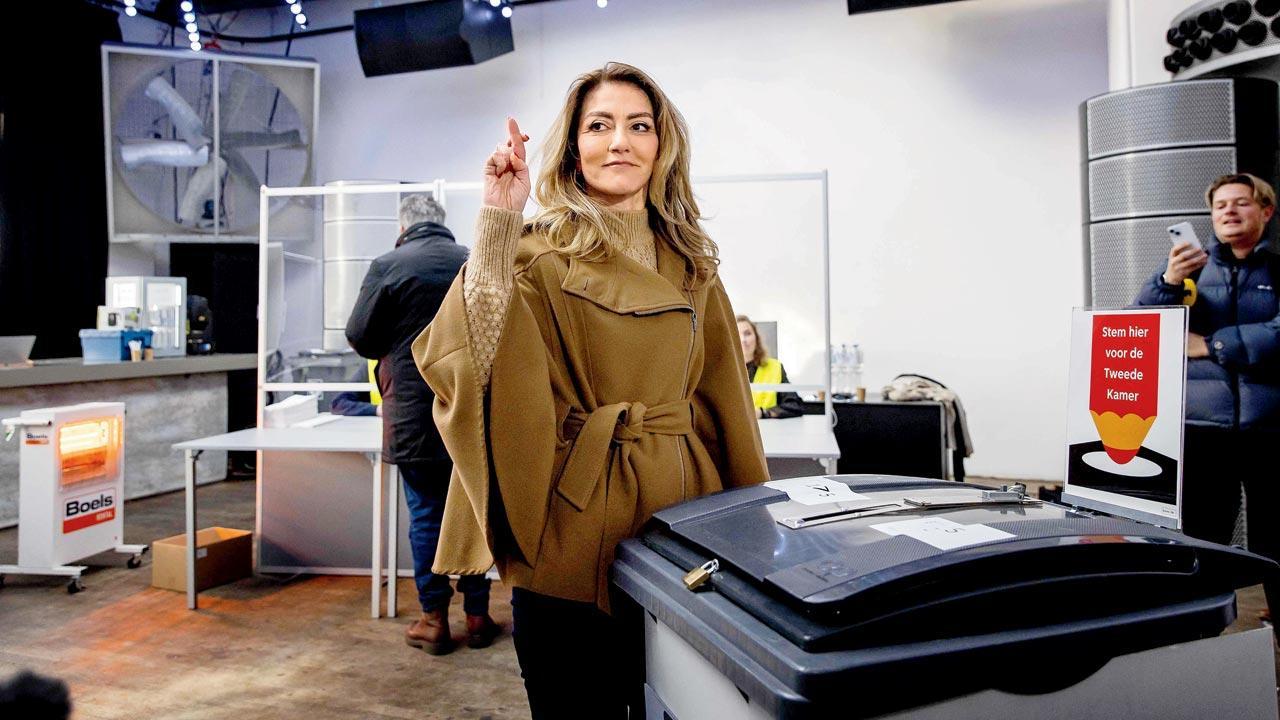His replacement after 13 years in office could be the country’s first female premier or a social democrat who left his job as the European Union’s climate czar to return to national politics

Leader of the People’s Party for Freedom and Democracy (VVD) Dilan Yesilgoz prepares to cast her ballot. Pic/AP
One thing is certain for the Dutch voters casting ballots in a general election on Wednesday: Mark Rutte, the Netherlands’ longest-serving prime minister, is on the way out.
ADVERTISEMENT
His replacement after 13 years in office could be the country’s first female premier or a social democrat who left his job as the European Union’s climate czar to return to national politics.
The next prime minister also might turn out to be an anti-Islam lawmaker or a centrist who created his party only three months ago.
The outcome is hard to predict given what happened in other European elections in recent months. Populist and hard-right parties triumphed in some EU member nations and faltered in others, creating conflicting messages on where democracy on the continent was heading.
Spain set the scene in July, when it looked like the far right together with the conservative Christian Democrats might dislodge Socialist Prime Minister Pedro Sánchez, who has led the country since 2018. Somehow, the incumbent hung on, though it required political acrobatics and a risky alliance with Catalan nationalists.
This story has been sourced from a third party syndicated feed, agencies. Mid-day accepts no responsibility or liability for its dependability, trustworthiness, reliability and data of the text. Mid-day management/mid-day.com reserves the sole right to alter, delete or remove (without notice) the content in its absolute discretion for any reason whatsoever
 Subscribe today by clicking the link and stay updated with the latest news!" Click here!
Subscribe today by clicking the link and stay updated with the latest news!" Click here!







